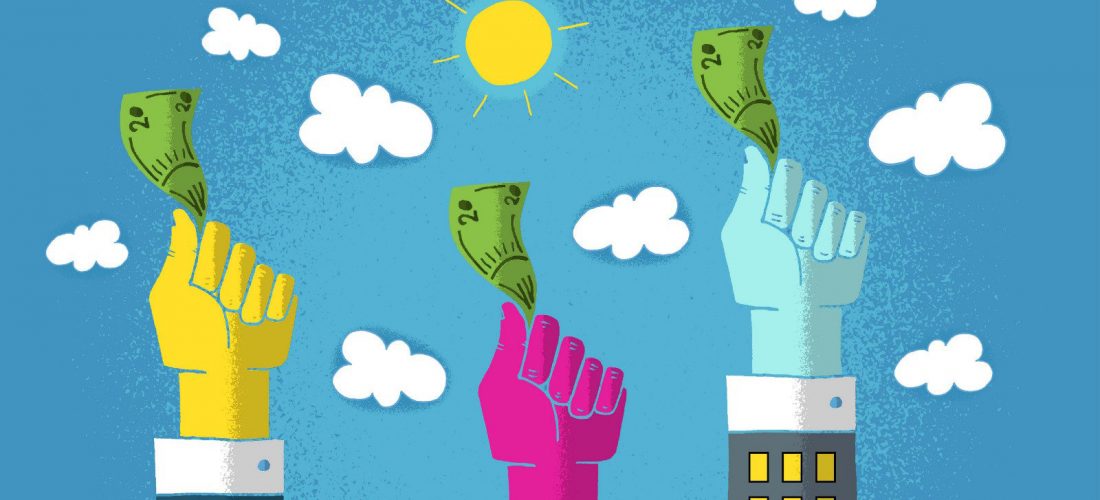From a compensatory to an emancipatory European and human society with unconditional basic income.
Unconditional Basic Income: “A basic income is an income unconditionally granted to all on an individual basis, without means test or work requirement”.
In February 2013, the Council of Europe organized a big conference on poverty and inequality. This came a month after the European Commission gave the go-ahead for the collection of signatures in support of a European Citizens’ Initiative requesting European Union member states to research ways, means and consequences of introducing a UBI (Unconditional Basic Income) in Europe.
A surprising large number of speakers, and many of the discussions in the Council of Europe conference, supported a UBI as one of the right tools for tackling poverty, especially extreme poverty, and promoting greater equality, not just in Europe but around the world.
As stated by United Nations Special Rapporteur Magdalena Sepulveda, a UBI would be an important weapon in the battle against the violation of human rights, of civil and political rights, caused especially by poverty and inequality. As she noted, traditional measures to counter poverty are showing their limits and there is a need for a renewed and more progressive strategy. We can suggest that UBI could not only be – but definitely is – one such strategy.
Guy Standing, one of the founders of BIEN (Basic Income Earth Network), argued that a UBI would particularly benefit the precariat, a fast-growing emerging class of people, characterized by insecure, uncertain employment and lack of any occupational identity. This group, now a minority suffering from or threatened by inequality and poverty, has yet to recognize its class interests, but it is set to become the majority. A UBI would not only be a means of rescuing the precariat from the threat of poverty (they are already unequal) but would reduce inequality and improve their bargaining position in the labour market.
A UBI would also encourage many people to accept and even welcome flexible labour conditions now considered precarious. Without basic economic security, increasing precariousness will lead to a dangerous situation of widespread social unrest.
That said, implementing a UBI in any European or other country would need to be carefully planned and worked out!
To ensure that flexible labour markets do not simply impose precariousness on employees and job-seekers, but provide a living and working system that benefits them as well as employers, a UBI must fulfil the following conditions:
UBI has to be individual
UBI has be unconditional
UBI must be high enough!
Individual means that a UBI will be paid regularly every month, to each individual. The UBI for children (up to a certain agreed age) would be paid to their parents or guardians.
Unconditional means that no conditions need be fulfilled by the beneficiary – including willingness to accept a paid job.
High enough means that the UBI must meet basic living costs for a single individual in accordance with the standards considered normal in the society where he or she is living and where the UBI is established. The UBI should be high enough to finance a basic basket of goods and services, or very close to that level.
(For a long time, the yardstick for the UBI was the poverty line, but more recently there has been discussion of changing this to a basic cost-of-living basket. While in most cases their values are very close, the poverty line is measured by incomes while the cost-of-living basket depends on the prices of goods and services needed for subsistence. There are other reasons for such a change as well, but the mentioned one is the most important).
What is an Unconditional Basic Income?
Supposing that most of the readers of this article know what a UBI is, a short introduction may be sufficient. UBI is a very old idea, appearing first in Thomas More’s Utopia, 1516, in Joannes Ludovicus Vives’ De subventione pauperum , 1526 (http://plato.stanford.edu/entries/vives/ ), and in the works of a wide range of different authors since.
In modern times, among the first to write about UBI was Erich Fromm (The sane society, 1955: http://opus4.kobv.de/opus4-Fromm/frontdoor/index/index/docId/619, page 269 ff in the Slovenian edition 1970), and this idea was given new life by Philippe van Parijs (https://www.uclouvain.be/en-11688.html), one of the founders of BIEN (Basic Income Earth Network) Guy Standing, a speaker at the Council of Europe conference, is one of van Parijs’ close associates.
Simplified, UBI could be explained as the duty of any society to make it possible for all its members to live in a way that society considers normal, and, on the other hand, as the right of any member of such a society to live a life without fear of poverty and inequality. That means also that each member of society has a responsibility to care for the rights of others.
As societies are currently organized, and because of the importance of money, a UBI would require each state to pay to every citizen each month an amount equal to the value of a basic basket of goods and services.
The Council of Europe conference on poverty and inequality highlighted some important tasks for countries. First, it noted that human rights are universal, indivisible and interdependent (Conclusions of the Conference, p.3). Implementation of the UBI system can be considered as a tool for reaching exactly these aims. At present, very few of those living in precarious conditions that push them into a never-ending fight for survival – and even those who still have relatively secure jobs – can be really independent and able to enjoy their rights as well as meet their social obligations. Now, their tasks are limited to fulfil only their duties towards their employer. Only if survival is guaranteed at a minimum level, which a UBI would ensure, can people be in a position to freely enjoy their rights on the one hand and meet their obligations on the other – understanding that both rights and duties depend on each other.
If any result of an implemented UBI system can be sure, it is the protection against poverty (…as a) legal obligation of governments. (ibid. p.3, refer to European Social Charter art. 30 and the Charter of Fundamental Rights of the European Union, art. 34, para. 3). Wherever it is established, UBI, anchored by the cost-of-living basket, will almost immediately eliminate poverty or at least extreme poverty.
There are many examples where UBI has been introduced as a pilot project; everywhere the results were unexpectedly positive. One of the best known such projects was carried out in the village of Otjivero in Namibia (more details at http://www.bignam.org/BIG_pilot.html or https://en.wikipedia.org/wiki/Omitarareferring to How a Basic Income Program Saved a Namibian Village, “Der Spiegel”, Oct 2009).
Of course, to get such results, the UBI must be individual, unconditional and high enough!
The next page of the Conclusions of the Conference underlined Social cohesion as defined by the Council of Europe, explaining this as “society’s capacity to provide well-being for all, including future generations…” and referring to the New Strategy for Social Cohesion, 2010.
It was further mentioned that on 20 February 2013 (a day before this conference was held), the European Commission adopted a Social Investment Package based on the following principles: 1) using social policy budgets “more effectively”; 2) improving people’s chances of participating in society and the labour market, which includes ensuring access to quality services, adequate income support and inclusive labour markets; and 3) putting into place preventative measures to safeguard against risks and prevent disadvantage from compounding (ibid. p.4).
UBI should not be understood simply as a social programme. It is a wide-ranging system which includes social components. While the social aims could and will be reached first, there is a range of goals UBI could and will reach. Most of these are included in the aforementioned thoughts on the Conclusions of the Conference.
It should be recognised that social programmes do not stand alone, but are linked to and influenced by economic and other systems, including the political system. Thus UBI cannot be considered as having only social aims. The results will be seen in many different aspects of society, including primarily the economy. It is undeniable that people who are more free, and more secure and safe at the same time, are much more inventive, which results in greater creativity and higher productivity.
Some opponents claim that countries do not have the means to finance a UBI. This argument is far from the truth. The opposite is the case. A UBI is probably the only tool enabling European society (and eventually the world) to realise the aims stated in the European documents above, as cited in the Conclusions of the Conference, within the foreseeable future – and almost all of them at the same time!
Take just one example: the conference proposed, as one of the most important policies, to “set full employment and decent working conditions as one of the primary concerns of the EU…” (ibid. p.4).
How could UBI not only be helpful but one of the most important instruments to bring such policies alive? For some answers to this question, we may turn to Guy Standing’s book The Precariat and other discussions on this theme (for example, by Slovenian professor Andrej Kurnik). For our purpose, it is enough to mention that the rising share of people living and working precariously is a fact in all modern – and less “modern” – societies. This direction of development of the labour market cannot be easily changed.
However, one of the solutions might be a UBI. A UBI would affect social and labour market conditions in two different and opposite ways. One would be to make the labour market even more flexible than it is; on the other side, more people would look for part-time or temporary jobs. Both will result in more jobs for more people. UBI will make it possible for workers to be unemployed for a few months without feeling excluded from society and, more importantly, without falling into poverty. And many, or perhaps most, people would use this period for further education and training, resulting in a further rise of productivity.
Returning to the question of financing a UBI, the 27 EU member countries spent 25% of their GDP on social security annually between 2000 and 2009. In the same period, the equivalent percentage for the 17 Eurozone countries was 27.5% (Eurostat, Φ of the period mentioned).
A UBI in Slovenia, at a level of the subsistence cost-of-living basket, would take between 27% and 30% of GDP – depending on the level of GDP. We can calculate that a percentage lower than 30% of GDP will be the right calculation for most European countries.
Support is currently being gathered for a European Citizens’ Initiative that asks the European Commission to support research on a UBI, for each European country and for the EU itself.
The cost and financing of UBI will have to be worked out. But this may be an easily solved problem. And in a few years, thanks to the positive influence of UBI on the labour market and productivity, it may cease to be a problem.
Nevertheless, the calculations must take into account the listed conditions. Besides the need for a UBI to be unconditional and individual, it must be high enough to buy the basic basket of goods and services, as determined by the statistics authorities for each country. As a UBI is meant to provide security against precarious working and living conditions, which are resulting in growing impoverishment and instability for most Europeans, this aim cannot be achieved with a UBI that is too low. It might be possible to eliminate extreme poverty with a relatively low UBI but such a goal could be reached by other, less complex ways than a UBI.
For UBI, higher aims need to be defined, such as those that can raise productivity, the enhancement of equality in all societies and especially in the labour market, including promoting educational opportunities for everyone living in Europe, whether or not in paid jobs.
It is to be expected that in a few years, after introducing a UBI, health will improve rapidly, one reason being the reduction of work-related stress and burn-out.
The unconditional basic income, as proposed by Guy Standing and supported by many others, should be considered as an investment in humanity, in people. It is a way to beat extreme poverty immediately and poverty in a very short time; a few years after being implemented, it will also reduce inequality and raise levels of productivity, education and health. It will provide welfare for all, including the minority that is living well already.
And how could the conference on poverty and inequality, and the conclusions of this conference, be understood otherwise?







